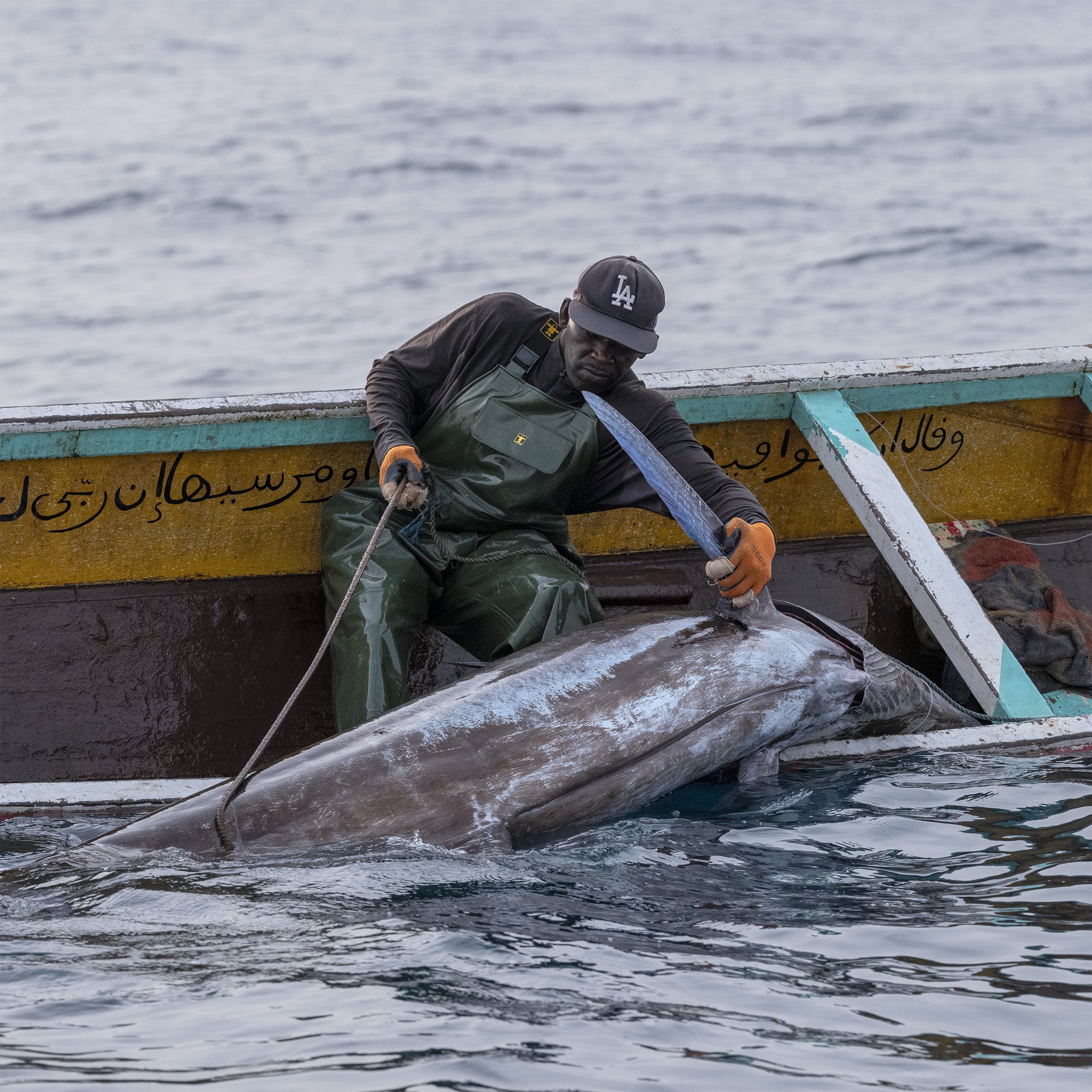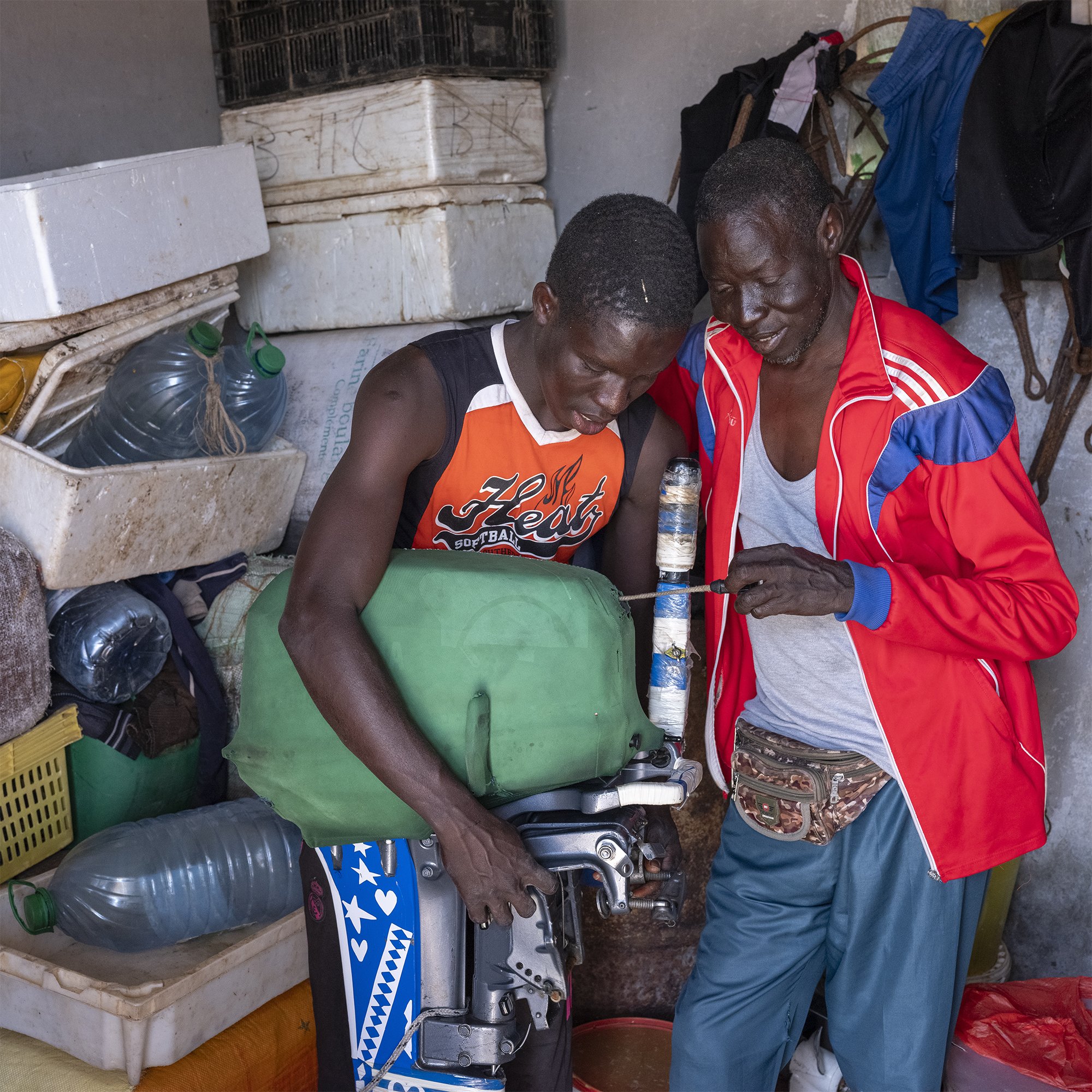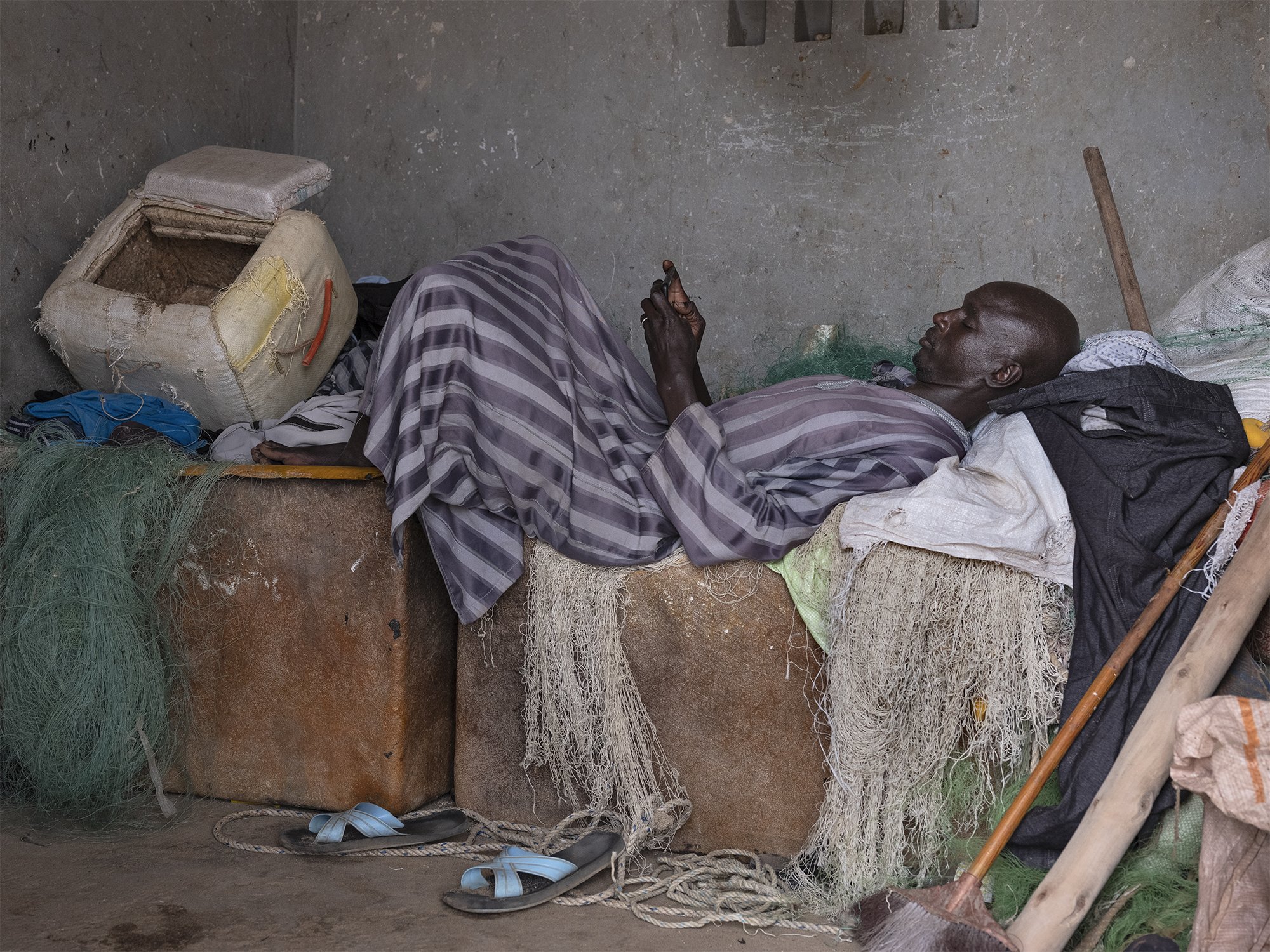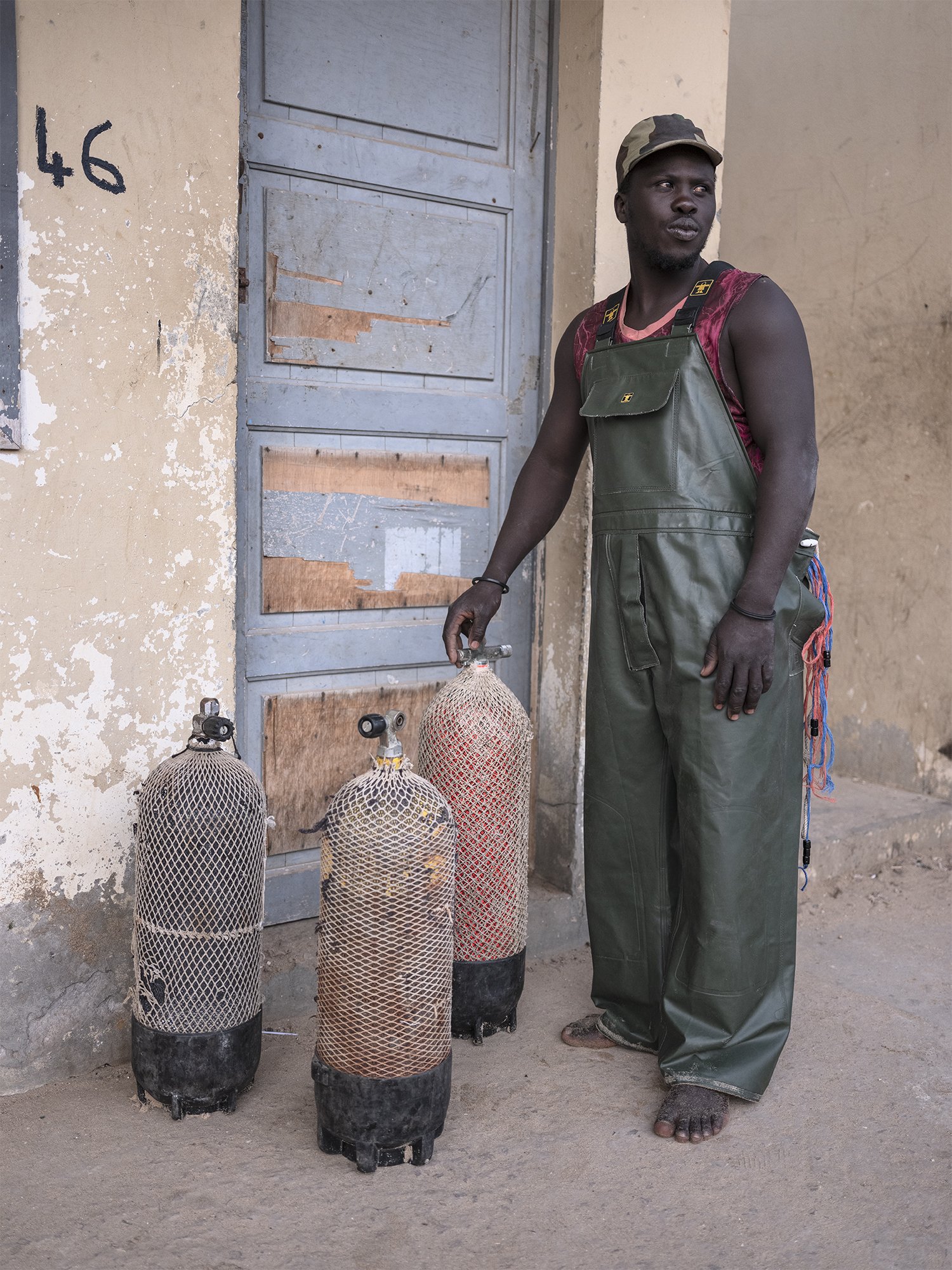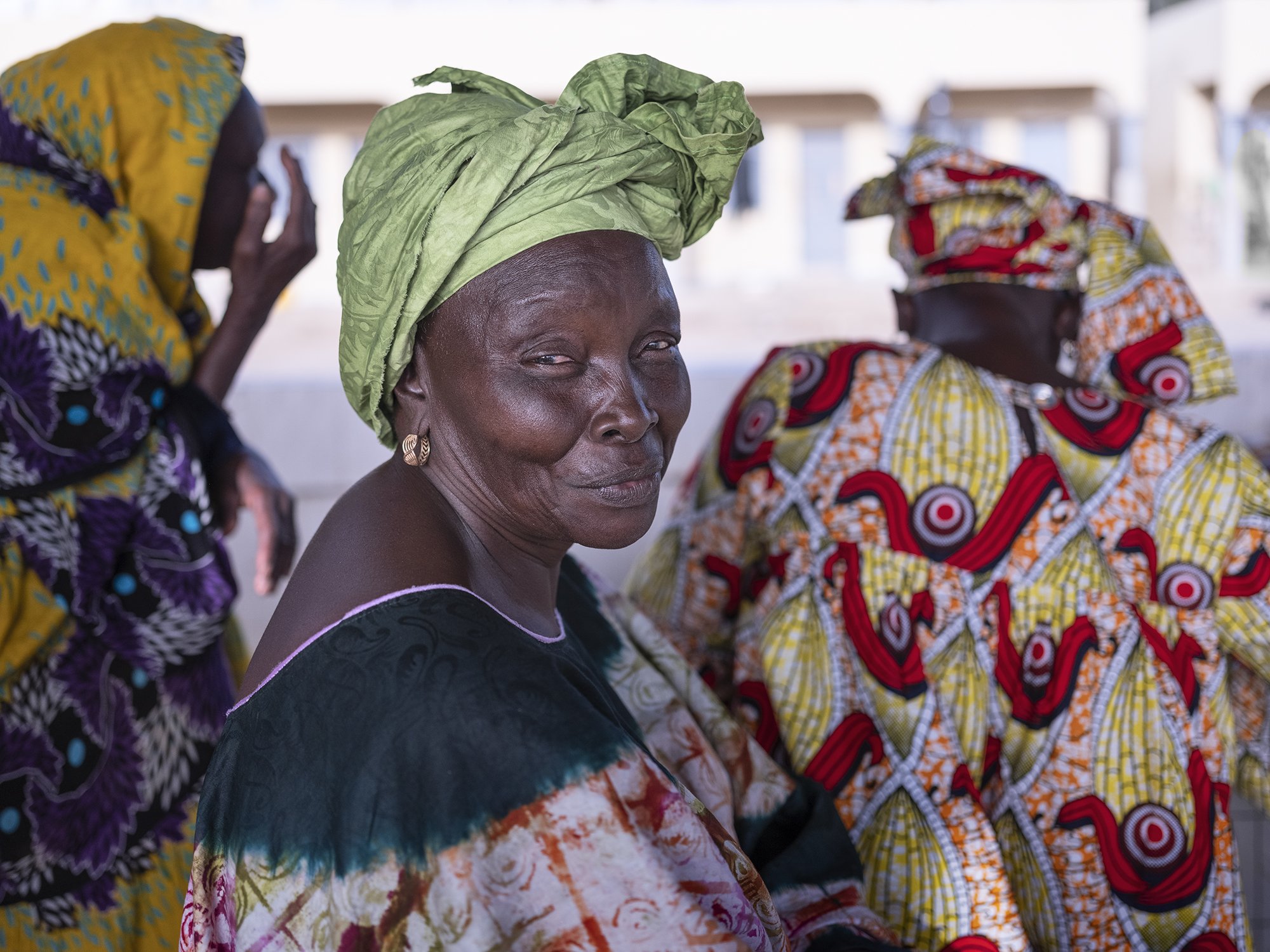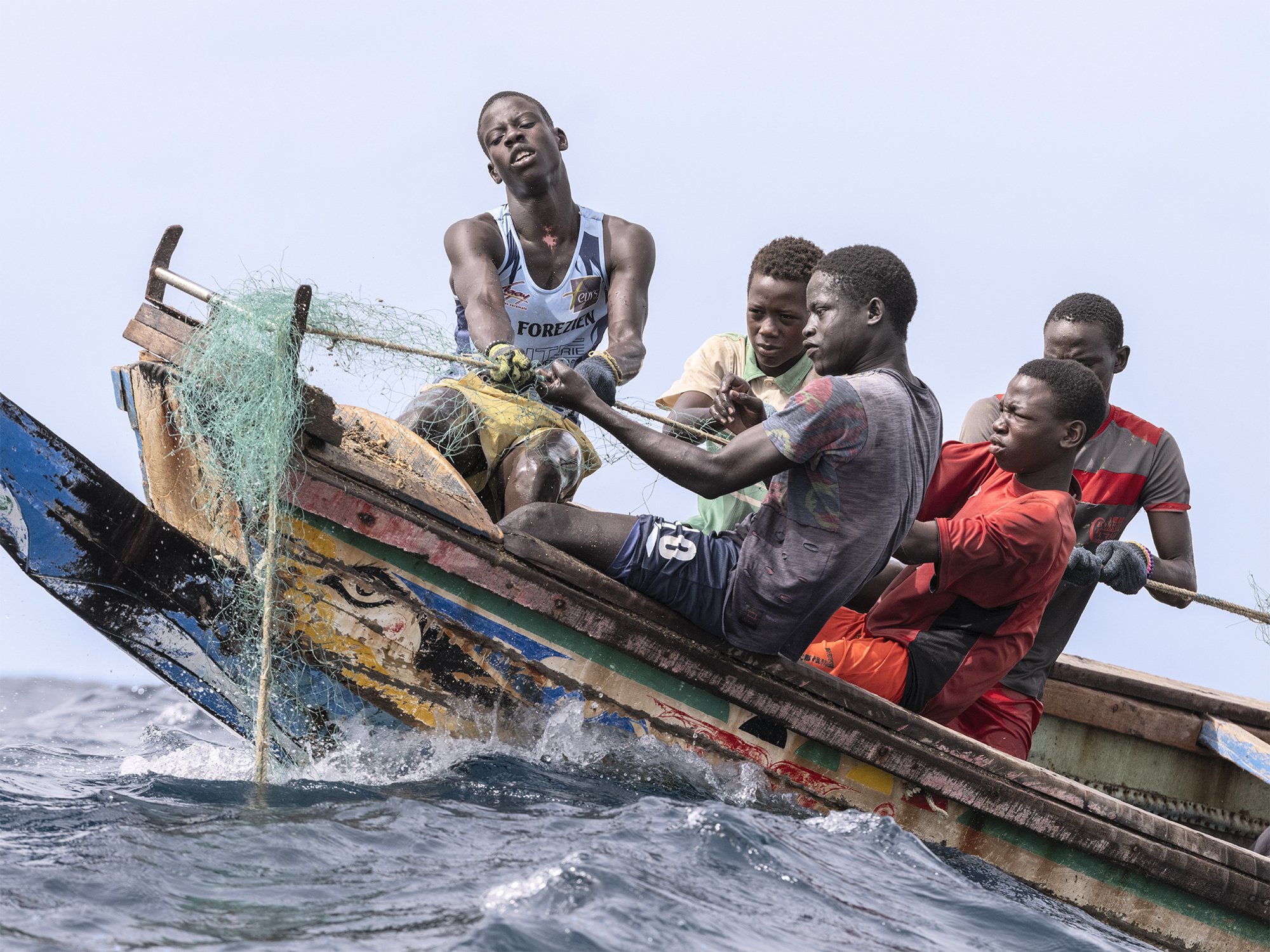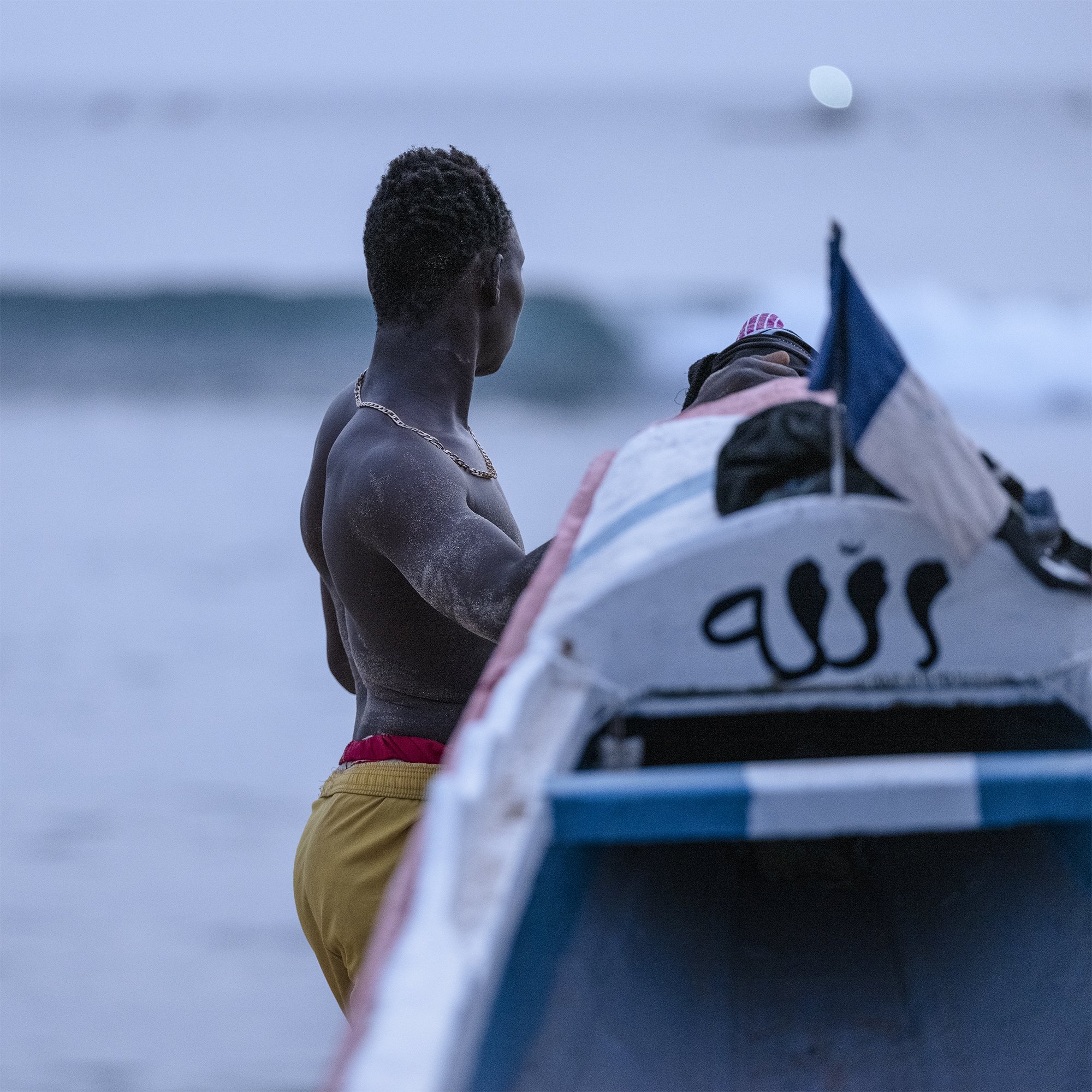LEBOU FISHERMEN
Lords of a dying sea
The purpose of this ongoing photography project is to draw attention to the situation of Lebou fishermen, the most important artisanal fishing community of Senegal, firmly rooted in local coastal societies, traditions and values. Like many such communities around the world, their ancestral livelihood is increasingly threatened by ineffective and poorly transparent fisheries management policies and practices, unfair competition from industrial fishing fleets, inequitable fishing rights, competition for space with other sectors such as infrastructure development, pollution and climate change. Besides the fishermen themselves, this projects also brings to the fore the critical role played by women, particularly in post-harvest and processing activities. Finally it underscores the critical contribution of artisanal fisheries to food security in Senegal
A ONCE ABUNDANT SEA - For centuries, the coastal waters of Senegal teemed with life of all sorts and sizes. Lebou fishermen enjoyed decent livelihoods. The sea was a source of abundance and ensured a large part of Senegal’s food security
FATHER AND SON - Lébou fisherman Issa Diagne teaches his son how to operate and maintain an outboard motor. Since time immemorial, navigation and fishing skills were transmitted from one generation to the next
A DYING SEA - The profusion of marine life in this part of the Atlantic ocean seemed limitless. Unfortunately, today, fishing nets barely bring back enough fish to feed Lebou households. Fish stocks have dramatically plummeted, due to decades of over-fishing
NATIONAL AND FOREIGN TRAWLERS FEED AN EVER GROWING FISH EXPORT MARKET - Global demand for fish products, including fish meal and fish oil, has triggered a booming fish export market and attracted many foreign trawlers. Trawlers belonging to distant water fishing nations are regularly spotted engaged in illegal, unreported, and unregulated fishing
GOING TO THE EXTREME - In search of fish to catch, Lebou fishermen sail ever further offshore with their frail wooden canoes, often facing rough and dangerous conditions. More often than not, they do not catch enough fish to cover their operating costs
THE POVERTY TRAP - With their income declining at an alarming rate, Lebou fishermen like Chiekhou Oumar Dieye can no longer save money and must go into debt. A cessation of activity due to illness often throws them into poverty
DANGEROUS DIVES - To supplement their income, young Lebou fishermen like Ismaila Sarr practice scuba diving to catch “thiof”, a very popular fish in Senegal. But diving accidents are common due to faulty equipment and lack of compliance with safety procedures
UNFAIR COMPETITION - Small-scale fish traders like Rokhaya Diagne no longer have the sufficient financial base to source small pelagic fish, whose prices have soared due to tough competition from wholesalers, exporters of frozen products and fishmeal factories
GOING FOR DEEP-SEA FISH - Deep-sea netting is a physically demanding technique used to target deep-sea species. Aboard Ali’s pirogue, 5 teenagers are hauling-in a net from a depth of over 300 meters. Many of these teenagers have dropped-out of school to help their fathers
A FUTURE ABROAD? MAY BE - Hard hit by the artisanal fishing crisis, many young Lebou fishermen travel the 1,700 kilometers separating Senegal from the Canary Islands, the closest entry point to the European Union. Many will not survive this perilous journey
